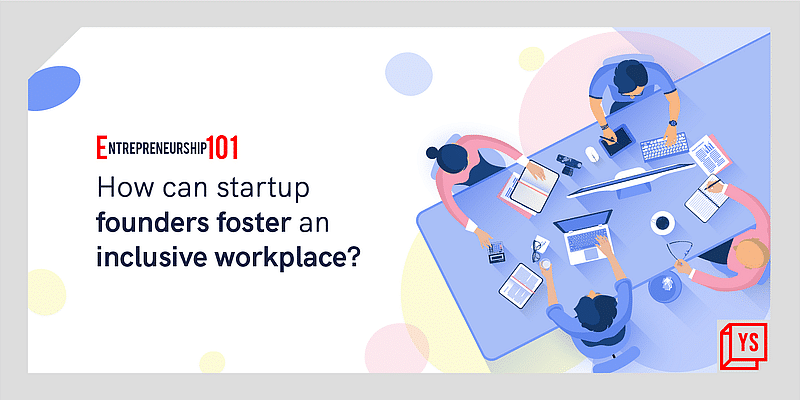With Indian startups reaching new heights every passing year, diversity and inclusion have started to become a benchmark for calculating this growth.
So, what is the advantage of having a diverse workforce?
A study by McKinsey called ‘Diversity Wins’, which surveyed more than 1,000 large companies, found that diversity in executive teams is related to the strengthening of financial outperformance. The report further confirmed that companies with more than 30 percent women executives are more likely to outperform companies where the percentage ranged between 10 and 30.
Diversity, thus, can foster productivity. Kriti Aggarwal, Co-founder and CPO of StoreHippo, says, “Team members coming from different cultural backgrounds, range of experiences, and mindsets can boost problem-solving capacity with innovative thinking.”
For startups, having a diverse team means having multiple perspectives on product development, more creativity and innovation, stronger business culture, enhanced performance, better-researched feedback on the product or service, and better business output.
Bhavishya Sharma, Managing Director of consulting firm Athena Executive Search and Consulting, revealed in an interaction with YourStory that ever since the company started onboarding diverse talent, it saw a huge uptick in the understanding, sensitivity, and accommodation for people from all walks of life. “We have started understanding the issues faced by them and also collectively work towards solutions to address these challenges,” he adds.
Around 65 percent of the workforce and 71 percent of the management at Athena are women employees, claims Bhavishya. Its team represents five religions, three nationalities, LGBTQ and Special Ability representation.
Today, Entrepreneurship 101 deep dives into how startup founders can foster an inclusive culture and a diverse workplace.
Mechanisms
“Startup founders should not only imbibe diversity but also promote it on every possible level,” says Kriti. Inclusion and diversity should be a priority for every entrepreneur and through all levels — from recruitment to the everyday working of the organisation.
Every addition made to a startup team should not only be looked at through the lens of competence but also in how they can contribute to diversity and inclusion. However, diversity is only the starting point. Prashant Sankaran, Executive Director of diversity and inclusion consulting firm Interweave Consulting, says that startups need to “Support it with policies and practices that facilitate equity so that finally an inclusive culture is created.”
YourStory asked startup founders how they promote inclusion and diversity in their companies, and how aspiring entrepreneurs can do the same. Here’s what they had to say.
Recruitment strategies
First and foremost, startup founders should aim at making the recruitment process unbiased. “It’s time to consider people as a sum total, not as parts of their achievements,” says Kriti.
People can prove to be an asset to a company, irrespective of their age, gender, and cultural backgrounds if they are given the right kind of training. Startup founders should practice empathetic leadership.
In fact, entrepreneurs should review diversity on the leadership team. Prashant says, “In case the founding team is not diverse, that diversity needs to be consciously created by inviting advisory board members with diverse profiles.”
“Another way is to look beyond the core team, and look at diversity in the whole ecosystem by working with partners or suppliers who are diverse,” Prashant adds.
Considering the changes that have taken place since the beginning of the pandemic, companies should rethink recruitment strategies and should be open to adapting hybrid work culture. However, hiring a diverse team is not enough. The workplace has to be shaped in a way where people remain and thrive.
Recognition
Recognising the hard work of people coming from diverse backgrounds goes a long way in removing biases in a company’s employees. Entrepreneurs should work towards highlighting the accomplishments and values brought to the table by individuals.
Kriti says, “Value the uniqueness of people, some might be a bit creatively inclined, some might be the hard worker type but not very creative — every resource adds value, respect them for the value they add.”
At the same time, founders should be empathetic and remember that employees cannot be the same throughout the year. They should be open to accommodating personal lows.
“Don’t be a boss, be the leader who identifies their employees’ strengths and channels them for organisational and individual progress,” Kriti adds.
Increase awareness
Prashant says startup founders should prepare themselves before making the commitment towards diversity and inclusion by increasing their and their employees’ awareness. Founders can do so by taking the guidance from a diversity and inclusion advocate and conducting workshops on the same.
Prashant advises founders to structure an internal committee to drive the agenda with commitments and objectivity. “Make your projection to the external audience (website, job description, pitchbook) diversity and inclusion compliant,” he adds.
Startup founders should identify the best diversity and inclusion toolkit and imbibe the same as a part of their company’s organisational or human resource (HR) practice. In fact, one way of promoting geographic diversity in a startup is by celebrating different cultural events and activities together. Entrepreneurs should continuously take feedback and keep evolving their initiatives.
Ensure everyone is heard
Entrepreneurs should ensure they connect with their employees, listen to them, and incorporate their suggestions into the company policies. Lakshmi M Kodali, Founder and CEO of global job portal platform OptimHire, says, “Giving people space to contribute through ideas and opinions, asking the quieter or junior team members for their views in meetings, and developing the skill of listening are all good practices to cultivate.”
At Athena, Bhavishya says, all critical decision-making for the organisation is arrived upon through a democratic process of counting every opinion in the firm. “We use our internal HR processes or polls, surveys and town halls to seek and gather opinions/feedback/suggestions.”
Similarly, StoreHippo has an open culture. Kriti says team leaders and top management are very approachable, ensuring that during the stand-up meetings hosted every day, and every member gets a chance to speak up and offer their suggestions or raise their concerns.
Summing up
Therefore, in order to create an inclusive and diverse workplace, entrepreneurs should identify and eliminate biases, and create a culture and policies that foster diversity. “Diversity is crucial to building a happy, thriving workplace,” Lakshmi says.
To sum up, the first step for entrepreneurs should be to build diversity consciously– especially in the leadership and Board roles. Second, they should work towards building equitable policies, and finally, founders should walk the talk– listen and respect diverse views, and have zero tolerance towards biases.
“We have a centralised communication platform, a flat leadership structure, and a monthly feedback system in place, all of which contribute to timely policy improvements and optimisation,” she adds.



![Read more about the article [Product Roadmap] How a focus on simplicity and user experience got MoneyTap the scale it was looking for](https://blog.digitalsevaa.com/wp-content/uploads/2021/03/PM1-1614692063719-300x150.png)
![Read more about the article [Funding alert] NoBroker.com turns unicorn after raising $210M in Series E round](https://blog.digitalsevaa.com/wp-content/uploads/2021/11/Imagetemplateforself7-1637655159823-300x150.png)





